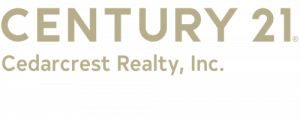How Much of a Down Payment Do I Really Need?
 If you’re planning on purchasing a home, it’s important to know the facts regarding down payments. First-time buyers are often surprised to learn how much they need to put down, especially in today’s returning market. The good news is that there are many options available that may fit your current situation. Homeownership is still the American dream, and if you’re tired of paying someone else’s mortgage, buying a home may be right for you.
If you’re planning on purchasing a home, it’s important to know the facts regarding down payments. First-time buyers are often surprised to learn how much they need to put down, especially in today’s returning market. The good news is that there are many options available that may fit your current situation. Homeownership is still the American dream, and if you’re tired of paying someone else’s mortgage, buying a home may be right for you.
20% Down Payment Industry Benchmark
In the mortgage industry, 20% down is considered the benchmark down payment. A 20% down payment looks good on paper and indicates financial security. But, what if you don’t have this much cash to put down on a home? With the high cost of rent, you may not have been able to put much away, but are still able to make mortgage payments. Fortunately, 20% down is not a requirement, nor expected in many cases.
What Other Down Payments are Available?
For an FHA loan, which is backed by the Federal Housing Administration, the minimum down payment is 3.5% down. An FHA loan is a nice option for first-time buyers who don’t have a ton of cash, and the loan requirements are typically more flexible. The one thing to be aware of is that FHA loans carry a monthly mortgage insurance payment, which can add significant dollars onto your payment each month.
Another popular option for homebuyers is to put 5% down and still secure a conventional mortgage. And, with a conventional loan, you may be able to get rid of the private mortgage insurance after accumulating 20% equity in a minimum of 24 months.
What if You Don’t Have a Down Payment?
Some buyers simply have nothing to put down, but this doesn’t mean that purchasing a home is out of the question. The Department of Veterans Affairs does offer a program where the homebuyers don’t have to put anything down, but it’s available only to military veterans, and the home must pass a clear pest report.
A second option is through the Department of Agriculture, USDA. You don’t need to be a veteran for this loan, but it’s only available for homes that are designated rural by the USDA.
Your best option is to meet with a realtor or loan officer who can inform you of your loan options and what down payment will help you secure a home loan.
What is a Reverse Mortgage?
 A reverse mortgage is a type of loan that is available to homeowners 62 years old and older. The loan allows the homeowners to convert part of the equity they have in their home into cash. This type of loan program is designed to give Americans more financial security, especially during a time when a steady income may not be as easy to attain. Many people use the loan to supplement Social Security payments, as well as to pay medical expenses, make improvements to the home and pay for additional living expenses.
A reverse mortgage is a type of loan that is available to homeowners 62 years old and older. The loan allows the homeowners to convert part of the equity they have in their home into cash. This type of loan program is designed to give Americans more financial security, especially during a time when a steady income may not be as easy to attain. Many people use the loan to supplement Social Security payments, as well as to pay medical expenses, make improvements to the home and pay for additional living expenses.
Pros and Cons to a Reverse Mortgage
When you think about the concept of the program, it makes complete sense. After years or decades of paying down your mortgage and building up equity, the cash can be paid back to you. And, unlike traditional home equity loans, borrowers do not have to repay the loan. There are no monthly principal or interest payments. You are required to pay real estate taxes, utilities and hazard and flood insurance premiums.
There are still some things to think about, of course, as a reverse mortgage is not for everyone. First are the costs that are involved. Reverse mortgage fees are very high and include the interest rate, loan origination fee, mortgage insurance fee, appraisal fee, title insurance fees and any other additional closing costs. These fees are not paid out of pocket, but instead rolled into the loan.
Additionally, if you need to move out of your home permanently, you would be required to pay the loan back. This may not sound like a main consideration now, but it will be if you need a long-term care facility.
Amount of Payments and How to Receive Them
Is a reverse mortgage right for you? It could be. But it’s important to weigh all of your options, as there are both pros and cons to think about. The amount of money you can get from your home is based on:
-
Age of the youngest borrower
-
Current interest rate
-
Lesser of appraised value
-
Initial Mortgage Insurance Premium
Payment plans can be made in various forms, including:
-
Tenure
-
Term
-
Line of Credit
-
Modified Tenure
-
Modified Term
- Single Disbursement Lump Sum

 Facebook
Facebook
 Twitter
Twitter
 Pinterest
Pinterest
 Copy Link
Copy Link


